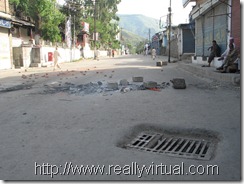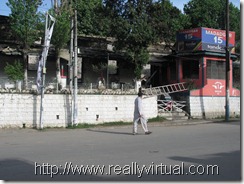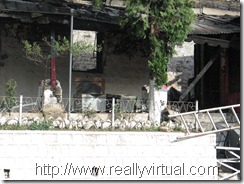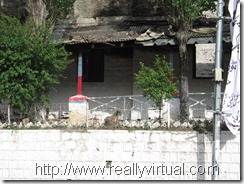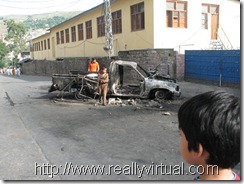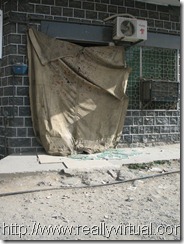Most of us Pakistani IT professionals spend our lives shielded from the ‘system’. Yes, we sometimes come out of our shells and protest against whatever we believe we have to demonstrate against – and yes, we do write blog posts and opine and criticize and debate, and sometimes attend the feel-good TEDx talks to ‘spread ideas’ – but living in front of our computers, we rarely get a first-hand experience of the system that we loathe (but one that we have to live in).
I was forced to get a taste of the ‘system’ last April, when my wife and son were in a near-fatal car accident. Their car was hit by a police van on their way to school.
Perhaps it was due to the traffic signal, which was not working due to load-shedding, or maybe it was due to the police van travelling off its official route for some personal business, and therefore, the (teenage looking) driver was speeding to make up for the lost time – whatever the reason, I came to know about it when a military police guy called my home to inform me that my family has been in an accident, and has been taken to the CMH.
Needless to say, the next few weeks totally changed my perspective on life in Pakistan – and to be honest, the shock and disgust at the dismal state of our legal and health system is the major reason that I have not been able to write a blog post for more than one year.
The accident also served as a catalyst and helped me move from the big-city life of Lahore to the small-town life of Abbottabad (moving out of the country still doesn’t sound right to me) – but last year’s experience still come back to haunt me whenever I look at the permanent scar on my son’s face, who had to undergo emergency plastic surgery – I hope chicks still dig scars in ten years.
I did not intend to write about it at all, but the images won’t let me move on until I get them out of the system, so my next few posts will be about the Pakistanis running our hospitals, police stations, courts and streets. What frightens me is that no martial law, democratic election or long march will change these people. Like viruses, they are microscopic enough to pass unnoticed, and yet they are usually the ones responsible for the fatal diseases that this country is suffering from.





